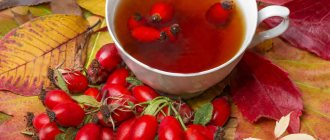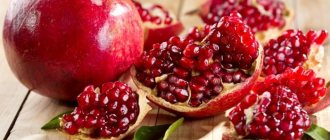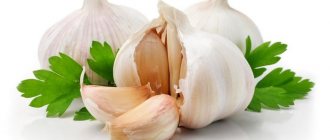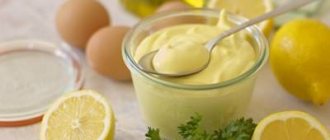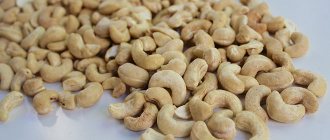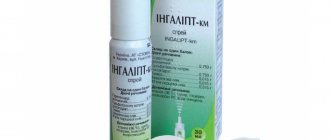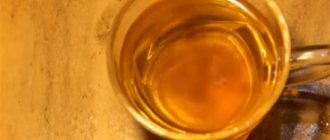During lactation, many mothers try to eat only healthy foods and drink exclusively natural drinks. Black tea is giving way to green and white varieties, coffee is temporarily leaving the diet, as is sweet soda. Mothers prefer compotes and fruit drinks, cocoa, fermented milk products, green and white tea, and herbal decoctions.
Herbs are the main helpers for young mothers who breastfeed their children. You can use herbs to treat yourself, support your body, strengthen your immune system, and increase lactation. Natural beneficial substances enter the baby's body through milk, so each new herb should be taken by the mother, starting with a minimum dose, because it can provoke an allergic reaction in the baby. There are herbs that should absolutely not be consumed by nursing mothers, but there are those that increase lactation and improve the well-being of mother and baby.
READ ALSO: black tea during breastfeeding
One of the most popular herbs is thyme, known since ancient times. It was revered by our distant pagan ancestors as a plant capable of restoring health and life to a person, for which thyme was given the name “divine” herb. They laid him on the fireplace, where they burned incense to the deities. The ancient magician doctor Avicenna wrote about the miraculous properties of thyme. Peasants washed newborns in the broth to protect them from the evil eye, and bunches of grass were hung in the corners of the house to scare away evil spirits and appease the gods, restoring health and bodily strength to the residents.
This wild plant can be collected in the field, purchased at a pharmacy or market as part of medicinal preparations or separately.
Thyme is useful for both adults and children, it has a pleasant taste and aromatic qualities, and is practically neutral in terms of the content of allergic components. It perfectly relieves both a variety of internal and external inflammations.
In terms of the prevalence of use as teas and baths, it is not much inferior to chamomile and lemon balm; it is also actively used during breastfeeding (we recommend reading: chamomile tea during lactation).
READ ALSO: Valerian during breastfeeding: rules of administration
Is it possible for nursing mothers to use thyme?
What could be better than aromatic, freshly brewed tea based on natural herbs? Thyme is considered one of the leaders in popularity of “raw materials” for tea. This herb is widely used in medicine and among gourmets. But is thyme allowed during breastfeeding?
What kind of weed is this
Another name for thyme is thyme. It contains tannins, various minerals, oils and organic acids.
Such a rich composition determines the beneficial properties of the plant:
- Thyme is effective in combating diseases of the bronchopulmonary system if they were caused by viral or bacterial infections. Thyme infusions are used in the treatment of ARVI, influenza and bronchitis. In addition, the plant has a pronounced diaphoretic effect, which significantly speeds up the healing process.
- It is recommended to take decoctions and infusions of this herb if you have gastrointestinal problems: excessive gas formation and colic.
- Thyme contains thymol, making the herb considered a powerful antibacterial agent.
- Thyme is a strong antispasmodic and is therefore recommended as a remedy for relieving pain during menstruation. The plant is also suitable for relieving spasms of intestinal smooth muscles.
- The manganese in this herb helps cleanse the body by removing accumulated toxins.
- Iron improves blood counts and restores hemoglobin.
- Systematic intake of thyme-based drinks helps strengthen the heart muscle, as well as normalize pulse and blood pressure.
As you can see, thyme is truly a collection of useful substances. But is thyme tea safe while breastfeeding?
Thyme during lactation: pros and cons
Do not forget that there are no absolutely safe plants. And thyme during lactation, despite all its positive aspects, can both help and harm.
The undoubted advantages of using this plant for breastfeeding are:
- The tonic effect of the drink on the uterus (especially important for women with weak tone of the reproductive organ);
- Drinks and infusions from thyme increase lactation. For this reason, it can often be found as a component of various lactation preparations. It can also be used as an independent remedy to improve lactation.
- Despite its bactericidal effect, thyme does not contain antibiotics, and therefore has virtually no effect on the baby’s body.
- Thyme helps a nursing mother relieve stress and relax. A cup of aromatic drink with a pleasant taste will be a wonderful bonus after a “working” day for a young mother.
But thyme is not the only benefit for breastfeeding. So, thyme can be harmful in the following cases:
- If the baby has problems with the cardiovascular or excretory systems.
- If there is an individual intolerance to the components of the plant (an allergic reaction may occur).
By the way, excessive consumption of thyme can cause depression of thyroid function.
And yet - can a nursing mother have tea with thyme or not? It is possible, but subject to careful monitoring of the baby’s condition. At the slightest sign of allergic manifestations, the grass must be eliminated from the mother’s diet for some time. In some cases, it is better to avoid this drink altogether.
When not to drink it
You should avoid drinking thyme tea if your mother or baby has:
- flickering arrhythmia;
- stomach ulcer;
- gastrointestinal disorders;
- pathologies of the urinary system;
- hyperlactation in the mother (the use of thyme can lead to lactostasis).
How to prepare and drink thyme for a nursing mother
If the mother is convinced that thyme has no negative impact on her and her children’s bodies, you can safely start drinking aromatic tea. Popular tea recipes:
- Mix a teaspoon of dry thyme with 2.5 tablespoons of regular black tea. The mixture is poured into a teapot with 350 ml of boiling water and left to steep for 10-20 minutes. You can add sugar.
- Bring 500 ml water to a boil in a saucepan. Add 1 tablespoon of dried herb and let it simmer for 5 minutes. Remove the dishes from the heat and leave the broth for 2 hours. The tea is decanted, after which it is considered ready to drink.
In addition to thyme, you can add other herbs to black tea to taste - rosehip, rowan, and so on. You can put honey in the finished drink, but do not forget that it is considered an allergen.
This herb is also added as a seasoning to first and second courses: soups, meat, fish. Such a soft but noticeable taste note will help diversify the gastronomic sensations of a nursing mother.
Tea with thyme is a delicious and extremely healthy drink. However, like any product, this plant has its downsides. Before treating yourself to aromatic tea, the mother must eliminate all possible risks of the plant’s negative effects on the child’s body.
Source: https://ProGrudnoe.ru/pitanie/chabrec-pri-grudnom-vskarmlivanii.html
Thyme during breastfeeding: benefits for a nursing mother
Thyme, or thyme, is a low-cost medicinal herb, but it successfully replaces expensive medications. Can nursing mothers take decoctions of this plant?
depositphotos.com. Syda_Productions.
Found in regions of Russia. The composition depends on the soil and other growing conditions, but in any case the plant is not deprived of beneficial properties.
General healing profile
Thyme contains essential oils (including thymol), tannins, bitterness, gum, and minerals. There are natural organic acids: caffeic, ursolic, oleanolic, quinic.
- The high content of thymol gives thyme strong antibacterial properties, which persist after drying.
- This is an effective remedy for respiratory diseases of bacterial origin. The herb is brewed and drunk for bronchitis and ARVI. The diaphoretic properties of thyme are aimed at combating colds, rhinitis and flu.
- The plant relieves pain during menstruation, intestinal and stomach spasms.
- Taking thyme is indicated for bloating, increased gas formation, and problems with the gastrointestinal tract.
Pros
- The aroma and taste of tea with thyme have a beneficial effect on the nervous system and normalize sleep, which is important for mothers with infants. The herbal drink helps fight stress and depression.
- The plant enhances lactation and is part of special collections for women who have lost milk or whose production has been greatly reduced. Tea with thyme is especially effective if problems with lactation are caused by nervous strain, lack of sleep or a cold.
- The herb has a tonic effect, so it is useful for nursing mothers with weakened uterine tone.
- Thyme is not an antibiotic and in small doses does not harm mother or baby. This sets the herbal preparation apart from many pharmaceutical drugs. But many medications (for example, for asthma and depression) cannot be taken by nursing women - potent “chemicals” enter the child’s body along with milk.
"Against"
But thyme has contraindications:
- The child may develop individual intolerance.
- The plant is harmful to children with kidney disease.
- Thyme should not be consumed during breastfeeding if the baby is prone to allergies.
Tea with thyme increases milk flow, so it is not recommended for mothers with good lactation. This can lead to breast diseases. A nursing woman will have to constantly express excess milk to prevent fermentation from occurring. But along with milk, beneficial microelements and vitamins leave the body.
Doctors note that thyme is a medicinal herb and should not be taken without special instructions. Self-medication leads to health problems not only for the mother, but also for the baby. Some pediatricians even prohibit women from drinking herbal infusions during lactation.
Drink Recipes
depositphotos.com. Madellen.
If your doctor has approved taking the herb, be sure to check with him about the permissible dosage. When breastfeeding, limit yourself to one mug of weakly brewed drink per day.
Black tea
- 3 tbsp. l. Ceylon tea;
- 1 tsp. thyme;
- 300 ml boiling water.
Brew tea as usual, but add thyme leaves to the brew. It will calm your nerves, relieve ailments, and help you cope with colds. The taste of the drink will be decorated with: honey, viburnum or cranberries, mint.
Herb tea
- 2 tsp. dry grass;
- 500 ml water.
Cooking methods:
- brew in a regular teapot;
- keep the saucepan with thyme and water on the fire for several minutes;
- insist in a thermos.
Taste shades differ with different brewing methods, but this does not affect the key beneficial properties.
Feel free to combine the plant with green, red, white or black tea. Other good combinations:
Thyme can improve the condition of your hair and skin. To do this, a decoction of thyme is added to the bath. The method is suitable for combating insomnia and nervousness.
Contraindications
Nursing mothers should not use thyme if:
- normal and abundant milk production;
- flickering arrhythmia;
- allergies in a child;
- brain diseases in the mother or baby;
- stomach ulcer;
- gastrointestinal diseases in children;
- kidney disease in the mother or baby.
Abuse of herbal drinks with thyme leads to hypofunction of the thyroid gland.
Reviews
We have collected for you the most interesting reviews from women who consumed thyme during lactation. Alexandra Pushnenko. I drank tea with thyme “Akhmat”. I noticed that my breasts began to fill up completely. Although I have already come to the conclusion that milk appeared clearly before feeding. I had to give up, and everything returned to normal.
Oksana Demchuk. I drank a mixture with thyme, but it didn’t help me. Royal jelly came to the rescue - lactation returned to normal, and my nerves stopped acting up.
Natalya Yankus. I make a mixture: fennel, thyme and oregano. The result is a pleasant-tasting lactation mixture.
Source: https://PitanieDetok.ru/grudnoe/chabrec-gv.html
Thyme during lactation: pros and cons
Drinking tea, decoctions and infusions from the thyme herb has a number of positive and negative aspects.
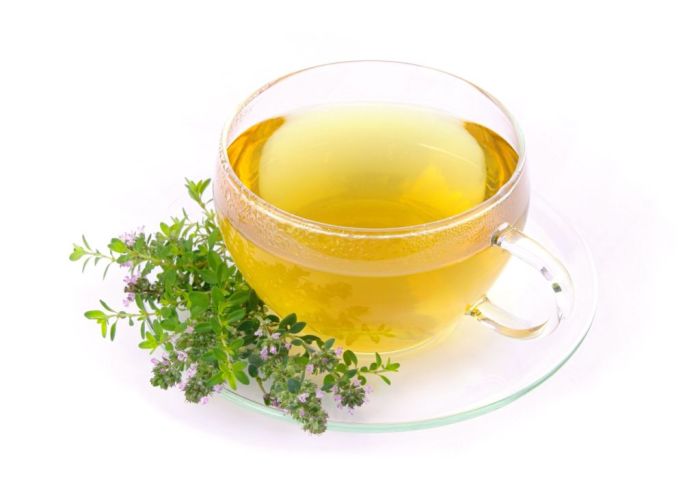
The positive aspects of this herb include:
- The taste and aroma of this tea has a beneficial effect on the nervous system of a nursing mother, normalizes sleep and improves emotional state. Natural tea helps cope with depression and stress.
- This plant has a tonic effect, so it is useful for women with weak uterine tone.
- Thyme can enhance the production of breast milk, so the plant extract is included in lactogenic herbal preparations. These remedies are especially effective if a nursing mother has lost milk due to severe stress or nervous strain.
- The plant juice does not contain plant antibiotics, despite its antibacterial activity. Drinking herbal tea cannot harm the mother and child.

The negative aspects of consuming thyme include:
- If a nursing mother drinks tea or medications based on thyme, then such experiments can negatively affect the body of children suffering from kidney pathology;
- A newborn child may develop individual intolerance to the components of the plant juice;
- If a newborn is prone to developing allergies, then the young mother should refrain from consuming this plant.
The plant extract helps increase the production of mother's milk in the mammary glands, so its use is not recommended if a woman does not experience problems with lactation. Unsuccessful experiments can lead to the development of mammary gland pathologies.
Thyme herb is a medicinal component that is not recommended for use without first consulting a doctor. Self-administration can result in health problems.
Thyme during breastfeeding: is it possible?
The healing properties of fragrant thyme have been known to people since ancient times. Official and traditional medicine recommend infusions and decoctions of this herb for many diagnoses. Thyme is also useful during breastfeeding, but young mothers should follow several rules.
Mentions of thyme (thyme) were found in the works of Avicenna; healers knew about the beneficial effects of the plant from the 3rd millennium BC.
Wherever this herb with fragrant purple inflorescences grows, it is used as a spice and medicine - in Europe, Asia, North America and North Africa, thyme is cultivated, harvested, and used in pharmacology, cooking, and cosmetology.
The leaves and flowers contain essential oils, tannins, vitamin C, folic acid, beta-carotene, B vitamins and many beneficial microelements. The rich composition makes thyme an almost universal medicine; in various forms it is suitable for external and internal use:
- Leaf extract and decoction . The drugs help with catarrh, bronchitis, and pneumonia. The well-known Pertussin contains thyme extract.
- Baths with aromatic oil . They alleviate the condition of nervous disorders, rheumatism, skin diseases and rashes, inflammation of joints and muscles.
- Essential oil . Thymol disinfects mucous membranes. Its use is effective for sore throats and stomatitis, for worms, diarrhea, and flatulence.
- Decoctions and tea . Increases performance and overall tone. Preventative against colds and flu. Helps with insomnia and headaches.
- Bath decoction . Babies are bathed in thyme decoction to eliminate diaper rash and calm a capricious baby before bed.
Lactation teas made from thyme are well known in many countries. Breastfeeding mothers may benefit from drinking a warm drink to boost milk production if needed. There are special pharmacy herbal preparations recommended for lactation, but they can only be taken after consultation with a pediatrician.
When breastfeeding (breastfeeding), it is not advisable for a woman to take medications whose substances penetrate into milk. During a cold, thyme becomes a life-saving remedy for cough and other unpleasant symptoms.
Important! Thyme acts as a sleeping pill; it should be introduced into the diet in small portions, without exceeding the recommended doses.
Despite all the positive qualities, you should not take tea with thyme as a regular drink. Uncontrolled use can cause harm to the baby and mother.
- Thyme substances have a pronounced calming effect. Even the aroma of dry grass and flowers acts as a sedative, so sachets are filled with dry grass and placed at the head of the bed for sweet dreams. Tea drunk in the evening will calm a child and help a woman relax after a busy day. Herbal tea also helps overcome nervousness and incipient depression.
- Thyme should be drunk by mothers who have little milk, especially if lactation has decreased due to nervous strain, lack of sleep, loss of strength, or a cold.
- After childbirth, the tone of the uterus may weaken; tea with thyme can restore it.
- During breastfeeding, many medications are contraindicated, and herbal tea does not contain antibiotics or “chemicals”. In doctor-approved doses, thyme will not harm either mother or baby.
The aromatic herb is not so harmless that tea from it can be drunk uncontrollably. In some cases you will have to give up tea:
- Some children have an intolerance to the substances that make up thyme. Observe the child's reaction.
- Thyme often causes allergies. If a child has a tendency to such reactions, tea ceremonies should be cancelled.
- Uncontrolled use suppresses thyroid function. Hypothyroidism is manifested by increased fatigue, drowsiness, tearfulness, irritability, cramps in the limbs, dry hair and skin.
- If there is enough milk, thyme is not needed. Excessive lactation can lead to painful sensations in the breasts, and you will have to regularly express the excess. In this case, there will be an overconsumption of vitamins, microelements and other beneficial substances that make up human milk.
Thyme is not just a pleasant-smelling plant. Medicinal herbs should not be prescribed to yourself without consulting a doctor.
The average permissible portion of tea with thyme is 200-300 ml of a weak drink. Unless otherwise directed by your doctor, stick to this dosage while breastfeeding.
Black tea
Black thyme is indicated for intestinal disorders and to enhance the production of gastric juice. If the baby has colic, it is advisable for the mother to drink this tea before feeding.
- 3 teaspoons black tea;
- half a teaspoon of dry thyme;
- 300 ml boiling water.
In a teapot, pour boiling water over the mixture of black tea and herbs. Before use, dilute with hot boiled water until light brown.
Green tea
Thyme with green tea helps with coughs and relieves inflammation. Tea for a nursing mother should not be strong.
- 3 teaspoons green tea;
- 1 teaspoon dry thyme:
- 250 ml boiling water.
Pour boiling water into the teapot with the dry mixture and place in a water bath for 10-15 minutes. Leave for about an hour. Before use, reheat and add a little hot water.
Herb tea
Thyme tea has a pleasant smell and taste; you can drink it without additives. In this case, the tea recipe is very simple:
- 2 teaspoons dry herb;
- 500 ml boiling water.
The herb can be steamed in a cup or kettle, infused in a thermos, or boiled in a saucepan for several minutes. The taste changes somewhat with different cooking methods, but the beneficial properties are preserved.
Thyme goes well with lemon balm, rose hips, mint, viburnum, lemon and honey. The composition of the mixture can be combined taking into account the effect of herbs on the child and the taste of the mother.
Per liter of boiling water you can put:
- 4 teaspoons dry thyme;
- 1 teaspoon of rosehip, lemon balm, mint, linden or other herb.
Pour boiling water over the herbal mixture in a kettle or thermos and leave for several hours.
Medicinal herbs should be used with caution as they contain active ingredients that are not beneficial for everyone. A doctor will help answer the question whether a nursing mother can drink thyme.
https://www.youtube.com/watch?v=FRaUmu2AlZY
Here are a few contraindications for which it is better to avoid thyme:
- Sufficient lactation.
- Flickering arrhythmia.
- Tendency to allergies in a child.
- Disturbances in the functioning of the brain in the baby and mother.
- A woman has a stomach ulcer.
- Digestive problems in a child.
- Kidney pathologies in mother and baby.
Thyme can be very useful and pleasantly diversify mom's menu. For a woman who has recently given birth to a child, this medicinal herb will help her to recover, and the baby will be well-fed and healthy.
Source: https://PitanieDetyam.ru/grudnoe/chabrec.html
Methods for preparing the drink
To prepare tasty and healthy herbal tea, you will have to take 2 teaspoons of dry raw materials and pour 500 ml of boiling water in a teapot.
Then keep it in a water bath for a while, letting it boil. Then the infusion needs to be poured into a thermos and infused. You can add various dried berries, flowers and other additives to tea. Good partners in herbal teas will be rose hips, berries, mint and lemon balm, honey and lemon. You can add thyme to regular black, white or green tea. This drink not only restores strength and helps in the treatment of diseases, but also promotes normal thermoregulation.
Can a nursing mother have thyme?
Many women prefer traditional medicine to medications during lactation, in particular, infusions and teas using natural herbs and plants. For example, thyme is used during breastfeeding to treat colds, but is such a remedy useful? And in what cases can you drink tea with thyme?
Thyme is very useful for breastfeeding in the absence of individual intolerance in the nursing mother or baby.
What is beneficial in tea with the addition of thyme and should a woman who is breastfeeding drink it?
Thyme, or thyme as it is often called, is a fairly well-known plant. First of all, this is due to its area of application - in medicine, thyme is added to cough medicines. But thyme is not only famous for this; its beneficial properties are very diverse.
If, for example, during gestation thyme is strictly contraindicated, then after childbirth it is considered permitted for use.
In general, its use during lactation is very safe. The only thing worth paying attention to is that thyme, like any other plant, can provoke an allergic reaction in a newborn or digestive problems.
Among the beneficial qualities of the plant are:
- Effect on blood pressure. Thyme reduces the frequency of contractions of the heart muscle, which causes the pressure level to decrease and the entire load on the cardiac system as a whole to decrease. Consequently, diseases of the cardiovascular system occur much less frequently.
- Therapeutic effect in the fight against cough. Thyme cleanses the bronchi and removes mucus, so tea with thyme during breastfeeding helps a nursing woman recover quickly from colds and prevents the development of complications.
- The plant contains vitamin C. In addition to strengthening the immune system, it has a beneficial effect on the overall health of both mother and baby. It protects the body from possible diseases, and when they appear, it helps to quickly eliminate the first symptoms.
- The antiseptic effect that the plant has due to the chemical elements it contains. When consumed, the infection inside the body is destroyed and all harmful substances are eliminated.
- High rate of effectiveness in the fight against helminths.
- Restores the nervous system, fights the signs of postpartum depression, which is often found in women giving birth. Helps cope with stress, normalizes sleep, restores the nervous system and improves the mood of a nursing mother.
- Restores healthy appetite. After childbirth, young mothers often experience complete apathy, including food. Tea with the addition of thyme not only stimulates appetite, but also has a beneficial effect on the functioning of the entire gastrointestinal tract, which is why foods are digested and absorbed much easier and faster.
- Affects milk production. Warm, copious drinks with thyme and other lactogenic agents stimulate lactation. And in addition to increasing production, the plant saturates the composition of breast milk with useful substances.
Tea to increase lactation: benefits and choice
Contraindications and side effects when drinking tea with the addition of thyme for breastfeeding
Sometimes seemingly healthy and high-quality products can cause unnecessary difficulties for the body. It all depends on each specific case and individual perception of a particular ingredient.
First of all, such situations can arise in infants and nursing mothers, so before consuming any drink or dish you need to find out about the possible adverse reactions of each component.
In thyme they are as follows:
- in case of allergies, difficulties arise with the respiratory system - respiratory congestion, cough, difficulty breathing. Such signs in a baby can appear from improper use of tea with thyme or from incorrect introduction of it into the diet of a nursing mother;
- indigestion in infants;
- difficulties with the mammary glands and possible pathologies, this happens due to an increase in milk production, so if a nursing mother’s milk supply is fine, there is no need to further increase lactation.
Contraindications for using thyme during breastfeeding include:
- flickering arrhythmia;
- diseases or pathologies in the urinary system in both mother and child;
- stomach ulcer;
- individual intolerance to any chemical element from the plant;
- newborn allergies;
- pathology of parts of the brain;
- gastrointestinal diseases in children.
Use thyme with caution for asthma and hypotension.
Recommendations for drinking a thyme-based drink during breastfeeding
- When buying a collection of herbs at a pharmacy, it is worth familiarizing yourself with the place where the plants grow. Since thyme is capable of accumulating harmful substances from the air, it is better to choose collection from an environmentally friendly place.
- Make a drink from one thyme and boiled water or a drink from a collection of herbs.
- You can drink mixed tea, that is, one serving of thyme and two servings of regular black tea leaves. This drink is infused for about two minutes and drunk.
- To improve the taste, you can add a little sugar to the drink, but you shouldn’t overdo it, because sweets harm the figure of a young mother.
- If the drink is mixed, then it is better to drink it in the morning, since black tea helps to overstimulate the baby’s nervous system, which will affect his sleep.
How and when can you introduce thyme into the diet of a nursing mother?
As a rule, new and potentially allergenic foods or drinks are introduced into the diet of nursing mothers no earlier than the fourth month of breastfeeding; thyme is included in the list of such ingredients. If you introduce thyme earlier during breastfeeding, you can provoke negative consequences in the baby.
The maximum dosage of tea with thyme during breastfeeding is one glass per day and no more than three per week.
You should not try the drink in large quantities for the first time; just a couple of spoons or one quarter of a mug is enough. This is the optimal dosage to identify a negative reaction, but not to aggravate the situation or harm the baby.
Further consumption of the drink is possible if the baby does not have: rash, redness, upset stool or difficulty breathing. If any signs of allergies are present, then you should think about replacing medicinal tea with similar natural remedies.
Recipe for making tea with thyme
It is best to initially discuss the preparation recipe with your doctor, as well as deciding whether to take such a drink. If tea with thyme is recommended for breastfeeding, then prepare it as follows:
- Mixed drink: black tea (2-3 tablespoons), dry thyme (1 teaspoon) and hot water (1.5 cups). The mixture is infused for about half an hour, then filtered and drunk.
- Pure infusion: thyme (2-3 tablespoons), water (500-600 ml). Infuse it in a thermos or ceramic teapot for 30 minutes, then strain and drink.
- You can prepare a healthy drink with the addition of other ingredients - lemon juice, rowan or mint, honey, lemon balm or rose hips. It is worth using those additives to which the baby is not allergic.
During lactation, thyme is not only acceptable, but also most often recommended, because it not only helps fight viral diseases, but also saturates milk with vitamins and nutrients, and also increases lactation. The main thing is to follow the proportions and recommended volume of drinks with thyme.
Source: https://prostoGV.ru/healthandbeauty/food/chabrets-pri-gv
Contraindications
Taking the herb during lactation is strictly contraindicated in the following cases:
- with a flickering type of arrhythmia;
- with sufficient production of mother's milk in the mammary glands;
- for diseases of the urinary system in a newborn and a nursing mother;
- with ulcerative damage to the walls of the stomach;
- in case of individual intolerance to the chemical composition of the plant;
- if the newborn has allergies;
- with pathologies of brain structures;
- for digestive disorders in the baby.
Tea with thyme during breastfeeding
During lactation, many mothers try to eat only healthy foods and drink exclusively natural drinks. Black tea is giving way to green and white varieties, coffee is temporarily leaving the diet, as is sweet soda. Mothers prefer compotes and fruit drinks, cocoa, fermented milk products, green and white tea, and herbal decoctions.
Herbs are the main helpers for young mothers who breastfeed their children. You can use herbs to treat yourself, support your body, strengthen your immune system, and increase lactation.
Natural beneficial substances enter the baby's body through milk, so each new herb should be taken by the mother, starting with a minimum dose, because it can provoke an allergic reaction in the baby.
There are herbs that should absolutely not be consumed by nursing mothers, but there are those that increase lactation and improve the well-being of mother and baby.
Tea with thyme is a good replacement for regular drinks when breastfeeding
One of the most popular herbs is thyme, known since ancient times. It was revered by our distant pagan ancestors as a plant capable of restoring health and life to a person, for which thyme was given the name “divine” herb.
They laid him on the fireplace, where they burned incense to the deities. The ancient magician doctor Avicenna wrote about the miraculous properties of thyme.
Peasants washed newborns in the broth to protect them from the evil eye, and bunches of grass were hung in the corners of the house to scare away evil spirits and appease the gods, restoring health and bodily strength to the residents.
This wild plant can be collected in the field, purchased at a pharmacy or market as part of medicinal preparations or separately.
In terms of the prevalence of use as teas and baths, it is not much inferior to chamomile and lemon balm; it is also actively used during breastfeeding (we recommend reading: chamomile tea during lactation).
It was revered by our distant pagan ancestors as a plant capable of restoring health and life to a person, for which thyme was given the name of the divine herb.
Can a nursing mother have thyme?
Many women prefer traditional medicine to medications during lactation, in particular, infusions and teas using natural herbs and plants. For example, thyme is used during breastfeeding to treat colds, but is such a remedy useful? And in what cases can you drink tea with thyme?
Thyme is very useful for breastfeeding in the absence of individual intolerance in the nursing mother or baby.
If, for example, during gestation thyme is strictly contraindicated, then after childbirth it is considered permitted for use.
